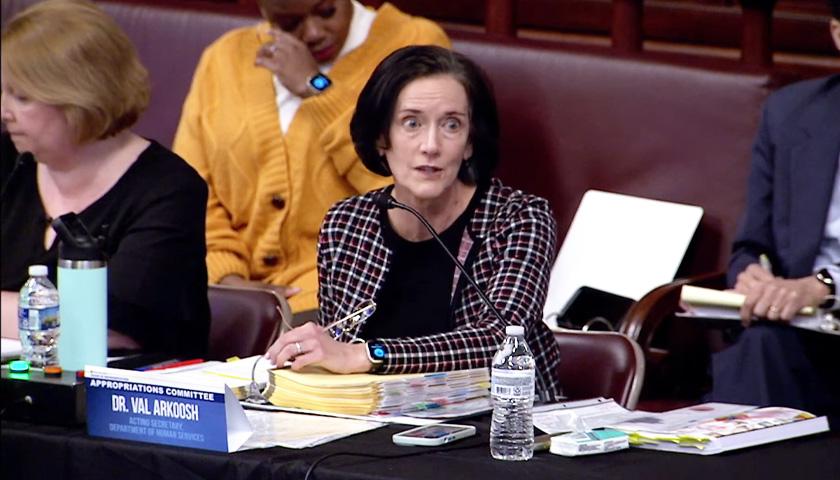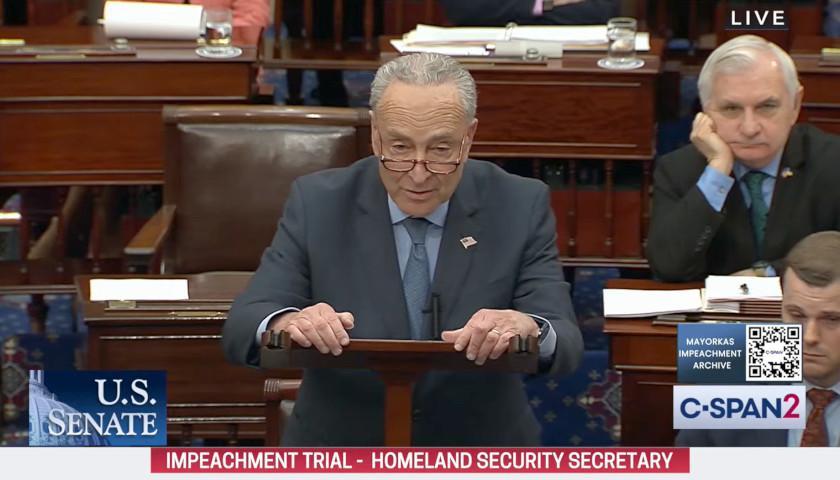Pennsylvania’s acting human services secretary on Tuesday told lawmakers an improved state system to detect Medicaid fraud will be in place this summer.
The comments from anesthesiologist and former Montgomery County Commissioner Val Arkoosh came as policymakers expressed concern about erroneous payments made by the government health insurance program for the poor. In 2020, Governor Josh Shapiro (D) said in his previous capacity as state attorney general that his investigations indicated improper payments could total as much as $3 billion annually in Pennsylvania. That amounts to about one-tenth of all state Medicaid funds.
Speaking to the state House Appropriations Committee in preparation for drafting the Fiscal Year 2022-23 budget, Arkoosh said anti-Medicaid-fraud efforts by her department’s program-integrity office yielded savings of over $400 million this fiscal year. But, she observed, more can be done.
“We are constantly working to update this program,” she said in response to questioning by State Representative Clint Owlett (R-Wellsboro). “We are transitioning to a modernized waste, fraud and abuse-detection system that is designed to enhance our ability to protect federal and state taxpayer dollars. That system should be fully operational by this June.”
Owlett said the Pennsylvania Department of Human Services (DHS) should be alert to Medicaid fraud exceeding the $3 billion that Shapiro and a bipartisan group of legislators discussed three years ago.
“Since 2020, a lot of things have changed with COVID and we’ve [been] receiving more money from the federal government,” he said. “It would seem like that could potentially be higher even than 10 percent, I would imagine.”
Owlett’s assertion reflects that state Medicaid spending has grown rapidly over the last few years. Before the COVID-19 pandemic, slightly more than a quarter of Pennsylvanians were insured by the federal-state program. That figure has grown to approximately 30 percent, with 840,000 enrollees added between March 2020 to February 2023, according to DHS figures.
DHS’s budget director Gloria Gilligan commented that while Medicaid fraud remains a problem, the Keystone State’s data compares favorably with that of most other states. According to the department’s annual payment-error-rate report, Pennsylvania has a 2.52-percent error rate for Medicaid payments and a five-percent error rate for the Children’s Health Insurance Program. Those figures come well under the national averages of over 15 percent and 26 percent for those programs, respectively.
“Pennsylvania is doing very well in this space,” Gilligan said.
Owlett countered that while Pennsylvania may be achieving more for taxpayers than other states regarding Medicaid fraud detection, the state must make further progress given the bipartisan recognition that error remains a major problem.
“We need to continue to do better,” he said. “The more money that we can make sure that we are saving and funneling to those who really need it is very important to my district and to this body.”
Since Shapiro’s 2020 remarks, state law enforcers have continued to encounter major examples of Medicaid fraud. Earlier this month, Attorney General Michelle Henry charged A Part of Our Family Home Care Agency and its owner Gavin Mata of Berks County with Medicaid fraud, theft and related violations. The company allegedly received $488,349 in taxpayer money between January 2020 and April 2022 for medical services that were never rendered.
Federal attorneys successfully prosecuted another Medicaid fraud case last September involving defendants Arlinda Moriarty, her sister Daynelle Dickens and their uncle Tony Brown, all of the Pittsburgh area. Each of the three received a years-long prison sentence for billing Pennsylvania Medicaid for never delivered services.
Altogether, Shapiro and Arkoosh are asking lawmakers to approve a DHS budget of roughly $19 billion, a 16.49-percent increase over the current fiscal year’s allocation. Lawmakers face a budget completion deadline of June 30.
– – –
Bradley Vasoli is managing editor of The Pennsylvania Daily Star. Follow Brad on Twitter at @BVasoli. Email tips to [email protected].
Photo “Val Arkoosh” by Pa. House Video.








